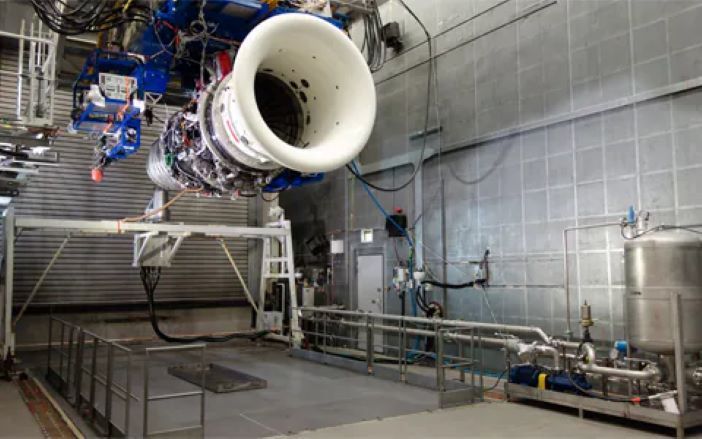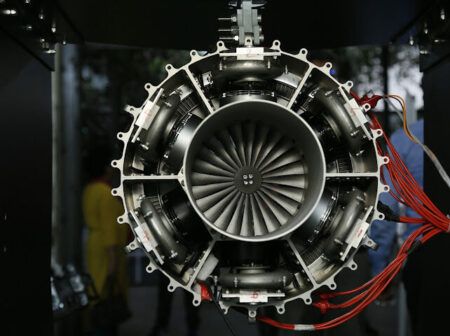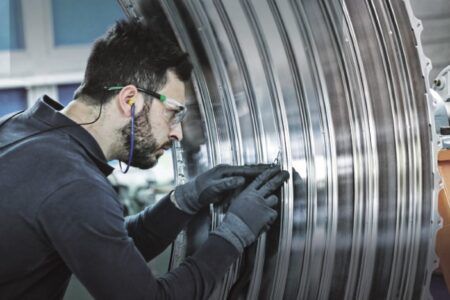Engineers at Rolls-Royce have completed a series of tests with 100% Sustainable Aviation Fuel on its latest generation of business aviation engines, the Pearl 15 and the Pearl 10X.
The Pearl 15, the first member of the Pearl engine family, powers Bombardier’s Global 5500 and 6500 aircraft, while the Pearl 10X will power Dassault’s ultra-long-range flagship aircraft, the Falcon 10X.
The tests took place at Rolls-Royce’s Business Aviation headquarters in Dahlewitz, Germany. The tests showed that the engines were compatible with 100% SAF and the Pearl 10X can also be run back-to-back with Jet A-1 and Sustainable Aviation Fuel (SAF).
The aim was to confirm further improvements in the environmental footprint when switching to SAF. The testing is the first back-to-back engine emission test under standard certification conditions and provides important correlations for the evaluation of future SAF within the company’s environmental strategy, said Rolls-Royce.
The back-to-back tests also confirmed a cleaner combustion of the sustainable fuel, with significantly lower levels of non-volatile particulate matter (nvPM). In combination with the low NOx combustor technology of the Pearl 10X and its additive manufactured combustor tiles, a reduction of all emissions was achieved.
The tests lay the groundwork for moving this type of fuel towards certification, at present, SAF is only certified for blends of up to 50% with conventional jet fuel. By the end of 2023 Rolls-Royce will have proven that all its in-production Trent and business aviation engines are compatible with 100% SAF.
Dirk Geisinger, director of business aviation at Rolls-Royce said, “Sustainable Aviation Fuels are a key element of our sustainability strategy, as they will play an important role in decarbonising long-haul flight. With its outstanding environmental performance, the Pearl family is already setting new standards in the ultra-long-range corporate jet market.”





